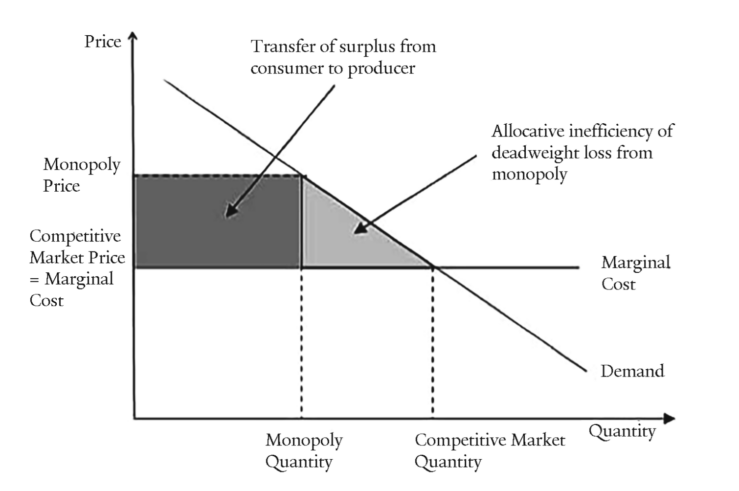Showing archive for: “Intellectual Property”
The Woman in the High Office
May 2007, Palo Alto The California sun shone warmly on Eric Schmidt’s face as he stepped out of his car and made his way to have dinner at Madera, a chic Palo Alto restaurant. Dining out was a welcome distraction from the endless succession of strategy meetings with the nitpickers of the law department, which ... The Woman in the High Office
Patent Eligibility, Competition, Innovation, Congress, and the Supreme Court
A highly competitive economy is characterized by strong, legally respected property rights. A failure to afford legal protection to certain types of property will reduce individual incentives to participate in market transactions, thereby reducing the effectiveness of market competition. As the great economist Armen Alchian put it, “[w]ell-defined and well-protected property rights replace competition by ... Patent Eligibility, Competition, Innovation, Congress, and the Supreme Court
Khan & Slaughter Make ITC Filing Supporting Policies that Would Undermine SEPs and US Innovation
Federal Trade Commission (FTC) Chair Lina Khan recently joined with FTC Commissioner Rebecca Slaughter to file a “written submission on the public interest” in the U.S. International Trade Commission (ITC) Section 337 proceeding concerning imports of certain cellular-telecommunications equipment covered by standard essential patents (SEPs). SEPs are patents that “read on” technology adopted for inclusion ... Khan & Slaughter Make ITC Filing Supporting Policies that Would Undermine SEPs and US Innovation
The FTC UMC Roundup–A Weekly Review
Welcome to the FTC UMC Roundup, our new weekly update of news and events relating to antitrust and, more specifically, to the Federal Trade Commission’s (FTC) newfound interest in “revitalizing” the field. Each week we will bring you a brief recap of the week that was and a preview of the week to come. All ... The FTC UMC Roundup–A Weekly Review
How the FTC Could, but Won’t, Use Its Rulemaking Authority to Allow Aftermarket Parts
We used to have a robust aftermarket for non-original equipment manufacturer (OEM) automobile repair parts and “independent” repair services, but car companies have increasingly resorted to design-patent protection to prevent competition in the supply of cosmetic repair parts such as bumpers, hoods, panels, and mirrors. The predictable and intended consequence has been to raise prices ... How the FTC Could, but Won’t, Use Its Rulemaking Authority to Allow Aftermarket Parts
Can the FTC Use Rulemaking to Change Antitrust Law?
FTC Rulemaking Power In 2021, President Joe Biden appointed a prolific young scholar, Lina Khan, to chair the Federal Trade Commission (FTC). Khan strongly dislikes almost every element of antitrust law. She has stated her intention to use notice and comment rulemaking to change antitrust law in many ways. She was unable to begin this process ... Can the FTC Use Rulemaking to Change Antitrust Law?
Senate Bill Looks to Rebalance ‘Internet Freedom’ and Creators’ Rights
All too frequently, vocal advocates for “Internet Freedom” imagine it exists along just a single dimension: the extent to which it permits individuals and firms to interact in new and unusual ways. But that is not the sum of the Internet’s social value. The technologies that underlie our digital media remain a relatively new means ... Senate Bill Looks to Rebalance ‘Internet Freedom’ and Creators’ Rights
Toward a Dynamic Consumer Welfare Standard for Contemporary U.S. Antitrust Enforcement
For decades, consumer-welfare enhancement appeared to be a key enforcement goal of competition policy (antitrust, in the U.S. usage) in most jurisdictions: The U.S. Supreme Court famously proclaimed American antitrust law to be a “consumer welfare prescription” in Reiter v. Sonotone Corp. (1979). A study by the current adviser to the European Competition Commission’s chief ... Toward a Dynamic Consumer Welfare Standard for Contemporary U.S. Antitrust Enforcement
Antitrust Policy and National Security Interests
U.S. antitrust policy seeks to promote vigorous marketplace competition in order to enhance consumer welfare. For more than four decades, mainstream antitrust enforcers have taken their cue from the U.S. Supreme Court’s statement in Reiter v. Sonotone (1979) that antitrust is “a consumer welfare prescription.” Recent suggestions (see here and here) by new Biden administration ... Antitrust Policy and National Security Interests
The Internationalization of Due Process, Federal Antitrust Enforcement, and the Rule of Law
The acceptance and implementation of due-process standards confer a variety of welfare benefits on society. As Christopher Yoo, Thomas Fetzer, Shan Jiang, and Yong Huang explain, strong procedural due-process protections promote: (1) compliance with basic norms of impartiality; (2) greater accuracy of decisions; (3) stronger economic growth; (4) increased respect for government; (5) better compliance ... The Internationalization of Due Process, Federal Antitrust Enforcement, and the Rule of Law
How Not to Promote US Innovation
President Joe Biden’s July 2021 executive order set forth a commitment to reinvigorate U.S. innovation and competitiveness. The administration’s efforts to pass the America COMPETES Act would appear to further demonstrate a serious intent to pursue these objectives. Yet several actions taken by federal agencies threaten to undermine the intellectual-property rights and transactional structures that ... How Not to Promote US Innovation
Does the Market Know Something the FTC Doesn’t?
During the exceptional rise in stock-market valuations from March 2020 to January 2022, both equity investors and antitrust regulators have implicitly agreed that so-called “Big Tech” firms enjoyed unbeatable competitive advantages as gatekeepers with largely unmitigated power over the digital ecosystem. Investors bid up the value of tech stocks to exceptional levels, anticipating no competitive ... Does the Market Know Something the FTC Doesn’t?














